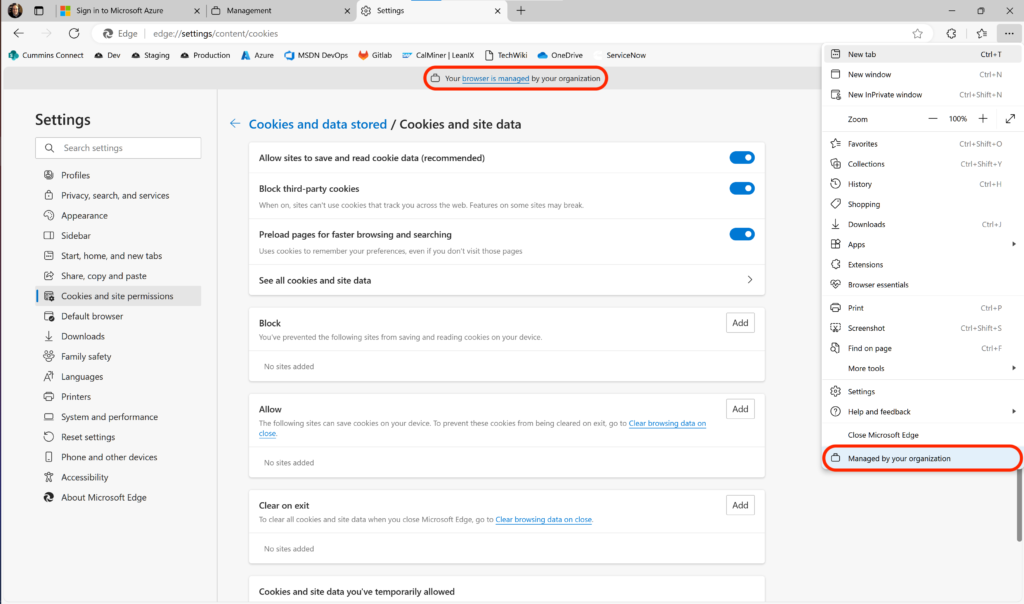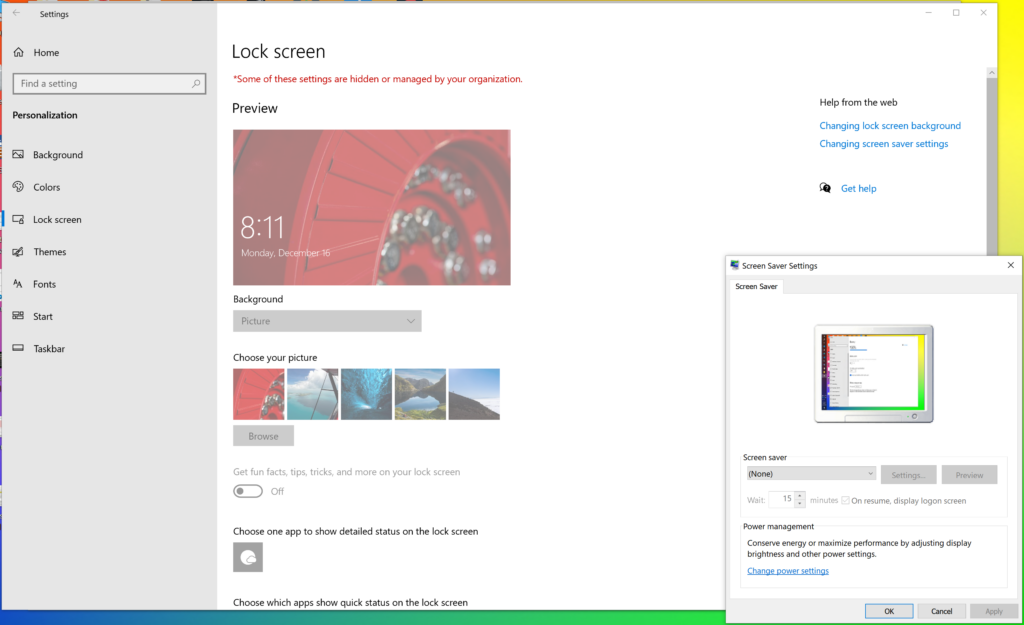
Either Microsoft changed something automatically with the way I log into the Azure portal, or #CorporateIT tried to fix something I complained about without telling me, but either way, I’m trapped in a loop of confirming I’ve done the thing I’m supposed to do. So I go to clear cookies, and I’m treated to not one, but two different messages informing me — as if I didn’t already know — that I don’t own this computer.

I see these messages in the browser, in every Office app, in OneDrive, and in the Windows settings. I get it. I got it. I’m good. Thank you for the continual reminder that literally every single keystroke, sound I make, image the camera can see, file I look at, email I send, web site I use, and everything else I’m tired of typing into this list is logged and reviewed by people who can somehow not go insane by looking at reports like this from 80,000 users. (If there were a use for AI to get its feet wet, this would surely be it.)
You may think I’m exaggerating, but many years ago, I got caught up in a kerfluffle with IT, and literally had someone look me dead in the eye and tell me that he reviewed every single file that got transferred to or from a USB drive connected to a computer. He said this as if I were supposed to be scared; like he was looking for a reaction that I should be worried. I just told him, “I know,” and moved on. This wasn’t something that was being advertised, but I easily inferred it by everything else going on in the way the company approaches IT. It seemed like he didn’t know how to process that.

Tangentially, I think this is why the Microsoft phone died. Microsoft lives and breathes by the average Fortune 500 IT manager — let that sink in — and of course people who bought a Windows phone wanted to connect it to their corporate email. When they tried, they got scary messages that the company could see everything they did with their phone, and remotely wipe it on a whim. I expect most (like me on my iPhone) backed out of the process, and then asked themselves what the advantage was of a Windows phone over others. For decades, it’s become routine for companies to make sudden, sweeping personnel changes, and who wants to wake up to a wiped phone because your company missed its projections for a second quarter in a row? I’m sure they’re only eliminating the people who had something to do with that, right? Right?
Our electronics our very, very personal. This is why people mostly choose Apple products when spending their own money. There is much more “telemetry” going on with Apple products than I would like, and they keep making moves to transform macOS into the same sort of walled garden that iOS is, but Apple is at least presenting an overall message that your stuff is your stuff, and they seem to making the right moves to ensure that. Time will tell, I guess.
Almost everyone has to use Windows at their job. Every company with a fleet of Windows computers is doing these sorts of things, because some upper manager hired some top-4 consulting company who told them they had to, and now everyone distrusts their company and Microsoft. That shows up on the bottom line.
Microsoft has a glorious opportunity to create a new version of Windows for personal use that flips the script. A version where there’s no telemetry and no artificial restrictions on hardware. Instead, they’re quintupling down on their user-last philosophy, and trying this. (Again.) The Windows terminal computer, with no local storage. It’s just a KVM to a Windows image running in their cloud. There will be — there cannot be — any hardware upgrades or gaming or piracy or anything else interesting. And for what? What’s the upside for the user? They still have a “computer” on their desk. What are they getting for the tradeoff? Who would want this?

I’m betting that part of this introduction is a whole fleet of “AI-enhanced” tracking of literally everything going on with the “computer,” so that IT departments can “simplify” this critically-necessary piece of “infrastructure” in their “security” posture, and I’d bet key people in my IT department are touching themselves thinking about foisting it on everyone who doesn’t have to have some sort of engineering or development tool.
